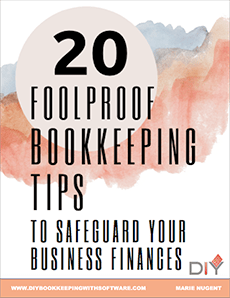As a business owner myself, I know that it is unavoidable at times – mixing business with personal funds, but this is not good business practice and should be avoided as much as possible. Why? Because, it is very easy to overlook business expenses that are paid with personal funds, and it is the best way to have IRS auditors going through all your personal affairs even though an issue is a business one. Since those monies do not directly affect the business bank or credit card accounts, you will need to make a concerted effort to track those expenses and record them appropriately on the business books.
Entering business expenses paid for with personal credit card or cash on the business books will depend on the structure of the business:
- For a Sole Proprietor or Single-Member LLC, the expenses should be entered to the relevant expense categories via Owner’s Draw/Equity. You will use this account for monies going in and out of the business by the owner. The Owner’s Draw/Equity accounts may have negative balances from time to time which will look odd on the balance sheet. So, it’s important to prepare a journal entry zero-ing out or offsetting these balances at the end of each month, quarter, or year.
- For a Partnershp or Multi-Member LLC, the expenses should be entered via Member Contribution if the owner is investing it, or loan based on the partnership’s operating agreement.
- For a Corporation, the expenses should be entered as loan if the owner will need to recoup the funds, or Equity Contribution if the owner wants to invest it in the business. If they are to be entered as loan, you will need to make the loan official, with repayment terms, interest, etc. Also, bear in mind that the IRS sometimes re-characterizes loan repayments as dividends – with serious tax implications. In this regard, a CPA should be consulted before deciding how to book these monies in QuickBooks.
In addition to the above mentioned effects of mixing business and personal funds, the mixing of business and personal funds can also pierce the corporate veil, and expose corporate business owners to personal liability which defeats the purpose of having a corporation to begin with. Sole proprietors already have personal liability, but not a corporation as it is an individual entity in itself. Separate business and personal financials at all cost, but if you do not, remember to enter them in their appropriate places and keep a record of receipts in the business files.



Recent Comments